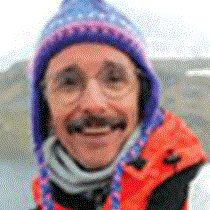Lake Eva, Baranof Island, Chatham Strait & Frederick Sound
This evening in Frederick Sound we discovered why Herman Melville wrote in Moby Dick that humpbacks are “the most gamesome of all whales.” Beneath a clamshell sky they practiced their marine repertoire, breaching, fluking, and lunge feeding. Whales off the bow, whales to starboard and port; mothers with calves, whales perhaps deep below, swimming under us to once again surface where we least expect.
Add to that 20 to 30 killer whales of a few hours before, a large resident pod making a slow and steady beat north up Chatham Strait. For two hours we quietly followed, listening to the concert of their puffs and blows, the large family group sometimes surfacing all together. From distinctive marks on their dorsal fins and saddle patches we recognized them as the Alaska F Pod, “resident” Orcas that feed on fish (as opposed to “transient” Orcas that feed on marine mammals).
The day began in sunny splendor off Lake Eva, on the northeast shore of Baranof Island. While some of us went kayaking in still waters and enjoyed the highlights of low riding, others walked a forest trail past an estuary and along a river where spawning pink salmon fought their way up a cascade. The long hikers made it all the way to the lake. Those of a more sauntering nature listened to our Lindblad naturalists talk about forest and salmon ecology. Bald eagles flew overhead. Kingfishers called. Sparrows and warblers flitted about, all while sunshine spilled through high crowns of western hemlocks and Sitka spruce, grand trees upwards of 300 hundred years old.
So now the moon is rising, and we have new dreams to dream. Already we are making new friends in the magic of Alaska, the Africa of America, where poet Mary Oliver once wrote, “Tell me, what is it you plan to do with your one wild and precious life?”
This evening in Frederick Sound we discovered why Herman Melville wrote in Moby Dick that humpbacks are “the most gamesome of all whales.” Beneath a clamshell sky they practiced their marine repertoire, breaching, fluking, and lunge feeding. Whales off the bow, whales to starboard and port; mothers with calves, whales perhaps deep below, swimming under us to once again surface where we least expect.
Add to that 20 to 30 killer whales of a few hours before, a large resident pod making a slow and steady beat north up Chatham Strait. For two hours we quietly followed, listening to the concert of their puffs and blows, the large family group sometimes surfacing all together. From distinctive marks on their dorsal fins and saddle patches we recognized them as the Alaska F Pod, “resident” Orcas that feed on fish (as opposed to “transient” Orcas that feed on marine mammals).
The day began in sunny splendor off Lake Eva, on the northeast shore of Baranof Island. While some of us went kayaking in still waters and enjoyed the highlights of low riding, others walked a forest trail past an estuary and along a river where spawning pink salmon fought their way up a cascade. The long hikers made it all the way to the lake. Those of a more sauntering nature listened to our Lindblad naturalists talk about forest and salmon ecology. Bald eagles flew overhead. Kingfishers called. Sparrows and warblers flitted about, all while sunshine spilled through high crowns of western hemlocks and Sitka spruce, grand trees upwards of 300 hundred years old.
So now the moon is rising, and we have new dreams to dream. Already we are making new friends in the magic of Alaska, the Africa of America, where poet Mary Oliver once wrote, “Tell me, what is it you plan to do with your one wild and precious life?”




